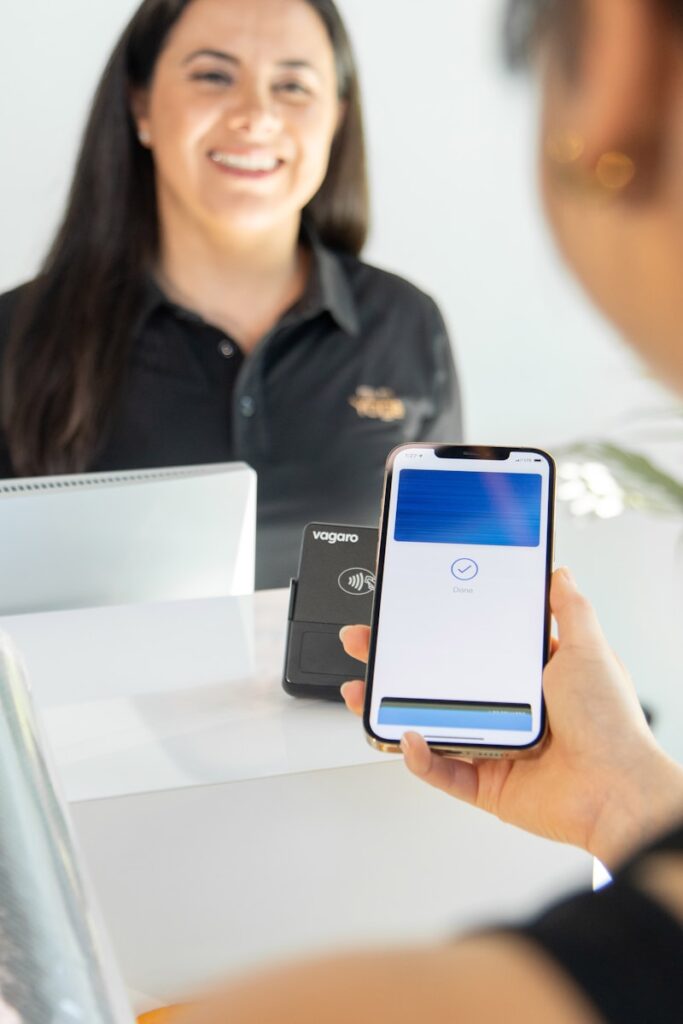How Do You Say “Check Out” in Spanish? Essential Phrases & Tips
Imagine you’re on a dreamy vacation in sunny Spain, soaking up the vibrant culture and indulging in delicious tapas. You’ve had an incredible stay at a charming boutique hotel, but now it’s time to check out. As you approach the front desk, you realize you don’t know how to say “check out” in Spanish. Panic sets in. You fumble with your phone, trying to find a translation app, but the Wi-Fi is spotty at best.
We’ve all been there, right? The good news is, saying “check out” in Spanish is simpler than you might think. Whether you’re a seasoned traveler or a newbie, knowing a few key phrases can make your trip smoother and more enjoyable. In Spanish, you say “hacer el check-out” or simply “check-out”. It’s one of those handy phrases that can save you from awkward moments and help you feel more confident exploring new places.
So, if you’re ready to add this useful term to your travel vocabulary and avoid any last-minute stress, keep reading. You’ll not only learn how to say “check out” but also pick up some tips on making your hotel departures as seamless as possible.
The Many Meanings of “Check Out” in English
You might not notice, but the phrase “check out” has different meanings in English. Let’s jump into what makes this phrase so versatile and, at the same time, tricky.
Understanding Context in Translation
You say “check out” all the time, right? “Check out this new book,” or “I’m checking out of the hotel.” But when translating, context is key. Your context decides whether you’re investigating, leaving, or simply interested in something:
You can see how misplaced translations could cause confusion, can’t you? Imagine telling someone “He died” when all you meant was “He left.”
Why “Check Out” Can Be Tricky to Translate
Why’s it hard to translate “check out”? Because of idiomatic expressions and cultural nuances. When you say “check out the new movie,” it means to watch it or take a look, but in another language, this could lose its meaning.
Consider these idiomatic uses:
These phrases show how meanings shift based on cultural contexts. In Spanish, for instance, you could say “Mira la nueva película” for “take a look” or “Prueba esta nueva app” for “test/try.” But, these translations don’t capture the exact nuance of “check out.”
Here’s a quick comparison:
Context | English Phrase | Spanish Translation |
|---|---|---|
Investigate/Examine | Check out this new restaurant. | Echa un vistazo a este nuevo restaurante. |
Leave/Depart | I’m going to check out of the hotel. | Voy a hacer el check-out del hotel. |
Take a Look | Check out the new movie. | Mira la nueva película. |
Test/Try | Check out this new app. | Prueba esta nueva app. |
“Salir”: The Spanish Equivalent for “Check Out” (Leaving)

When traveling, knowing how to say “check out” in Spanish can save you from confusion and make your stay much smoother. In Spanish, we use salir to convey this meaning.
How to Use “salir” to Mean “Check Out”
The verb salir doesn’t just mean “to leave”; it also aptly translates to “to check out,” depending on the context. While salir seems straightforward, it’s important to understand its nuances to avoid miscommunication. Imagine being at a hotel in Spain and wanting to check out. You’d say, “Voy a salir a las 10 a.m.” This not only informs that you’re leaving but pinpoints it to checking out.
Example Phrases with “salir”
Using real-world phrases makes the understanding clearer:
Notice how these phrases use salir in different scenarios to mean “check out” or simply “leave.”
Conjugating “salir” in Present Tense
Conjugating verbs can be complex, but salir follows a regular pattern in the present tense. Here’s a quick rundown for your next trip:
Subject | Conjugation | Translation |
|---|---|---|
Yo | salgo | (I check out) |
Tú | sales | (You check out) |
Él/Ella/Usted | sale | (He/She/You formal check out) |
Nosotros/as | salimos | (We check out) |
Vosotros/as | salís | (You plural check out) |
Ellos/as | salen | (They check out) |
Yo salgo (I check out)
For yourself, use “Yo salgo” to indicate you’re checking out.
Tú sales (You check out)
When talking to a friend, “Tú sales” works perfectly to indicate they’re checking out.
Él/Ella/Usted sale (He/She/You formal check out)
For third persons or formal settings, use “Él sale,” “Ella sale,” or “Usted sale.”
Common Mistake: Using “Chequear Afuera” (Literal Translation)

Avoid using “chequear afuera.” It’s a literal translation that doesn’t carry the same meaning. Stick with salir for a smooth conversation.
Understanding and using salir correctly ensures clear communication and a better experience during your travels. Why stick to literal translations when embracing the local language can bring richer experiences?
Hotel Check-Out: “Hacer el check-out” and Alternatives
Knowing how to say “check out” in Spanish can make your travel experience smoother and more enjoyable. Let’s jump into the most common and useful phrases.
“Hacer el check-out”: A Direct Translation
Hacer el check-out is the go-to phrase when checking out of a hotel in Spanish-speaking countries. It’s universally understood and straightforward.
Example: “Quiero hacer el check-out del hotel.”
“Desalojar la habitación”: A More Formal Option
If you need a more formal term, desalojar la habitación works well. It literally means “to vacate the room.”
Example: “Debes desalojar la habitación antes del mediodía.”
Useful Phrases for Hotel Check-Out in Spanish
When checking out, having a few more phrases can be handy. Here are some alternatives:
Phrase | Usage | Example |
|---|---|---|
Realizar el check-out | Another common phrase | Quiero realizar el check-out. |
Quiero hacer la salida del hotel | Used mainly in Colombia | Quiero hacer la salida del hotel ahora. |
Common Mistake: Using “salir del hotel” Instead of Specific Check-Out Phrases
Many make the mistake of using salir del hotel (to leave the hotel), which doesn’t clearly convey checking out. Stick to the specific check-out phrases to avoid confusion.
Phrase | Translation | Use Case |
|---|---|---|
Hacer el check-out | Check out | Most common and straightforward |
Desalojar la habitación | Vacate the room | Formal situations |
Realizar el check-out | Perform the check-out | Another common phrase |
Hacer la salida | Make the exit from the hotel | Mainly used in Colombia |
Retail Check-Out: “Pagar” and Related Terms
Exploring retail check-out in Spanish can be a breeze with the right vocabulary. Whether you’re in a bustling market in Madrid or a cozy boutique in Buenos Aires, knowing these terms enhances your experience.
“Pagar”: The Basic Term for Paying
When it comes to paying, pagar is your go-to term. This straightforward word means “to pay” and is universally understood across Spanish-speaking countries. For instance, if you’re at a store and it’s time to settle your bill, you can simply say, “Quiero pagar” (I want to pay). It’s that simple!
Have you ever felt a bit lost when shopping abroad, not sure which words to use at the checkout? Pagar cuts through the confusion, making transactions clear and easy.
“Pasar por caja”: Going Through the Checkout
Pasar por caja is another essential phrase to know. This means “going through the checkout” or “paying at the cashier.” Imagine you’ve picked up some beautiful souvenirs, and the cashier directs you to the register. They’ll likely say, “Pasar por caja, por favor” (Please go through the checkout).
Adding this phrase to your vocabulary can streamline your shopping experience, saving you time and ensuring you understand what’s being asked of you. Plus, it adds a touch of local charm to your language skills.
Essential Vocabulary for Retail Checkout in Spanish
To make your shopping trips even smoother, here’s a table with some key terms you’ll encounter during retail check-out:
English | Spanish | Usage Example |
|---|---|---|
Pay | Pagar | “Quiero pagar” (I want to pay) |
Go through the checkout | Pasar por caja | “Pasar por caja, por favor” (Please go through the checkout) |
Cash | Efectivo | “Voy a pagar en efectivo” (I’ll pay in cash) |
Card | Tarjeta | “Voy a pagar con tarjeta” (I’ll pay with card) |
Receipt | Recibo | “Puedo tener un recibo” (Can I have a receipt?) |
These terms help bridge any language gap, making your shopping experience more pleasant and less stressful. It’s always a good idea to familiarize yourself with these words before heading out.
Common Mistake: Using “Chequear” Instead of “Pagar” or “Pasar por caja”
One common mistake is using chequear when talking about checking out. While chequear can mean “to check” in some contexts, it doesn’t apply to retail check-out. You’ll want to stick with pagar or pasar por caja to avoid any confusion.
Remember how important it is to get these terms right? Miscommunication can easily occur if you use the wrong word. By mastering pagar and pasar por caja, you ensure smoother interactions and a more enjoyable shopping experience.
“Mirar” and “Echar un vistazo”: Checking Something Out
When learning Spanish, you often encounter moments where you need to figure out how to say something just right. For instance, “check out” in English can transform based on formality and context in Spanish. This section helps you nail down how to use “mirar” and “echar un vistazo” when you want to check something out.
Using “Mirar” to Examine or Look at Something
If formality calls, go with “mirar”. It’s your go-to for those moments when you need to take a serious look at something. Picture this: you’re at an art gallery, and the guide pauses to let you “mirar” each masterpiece closely. Not entirely sure where to use it? Imagine these scenarios:
“Echar un vistazo” as a Casual Way to Check Something Out
For all your laid-back, everyday conversations, “echar un vistazo” is your buddy. This phrase pops up when you’re casually glancing at something or checking it out briefly. Think of it like browsing through your friend’s Instagram feed, not a detailed examination, but more of a skim. Here are some instances:
Example Sentences
Seeing these phrases in action helps you remember them better. Check these out:
Mirar:
Echar un vistazo:
Common Mistake: Overusing “Revisar” When “Mirar” or “Echar un vistazo” Would Be More Natural
Many folks trip up by defaulting to “revisar” to mean “check out” in every situation. While “revisar” means “to review,” it’s not always fitting. Save “revisar” for detailed examinations, like checking a report for errors. Avoid using “revisar” when you’re simply looking or glancing at something. Trust “mirar” or “echar un vistazo” for more natural and precise communication.
Phrase | Use Case | Example |
|---|---|---|
Mirar | Formal examination | “Voy a mirar el contrato antes de firmarlo.” |
Echar un vistazo | Casual glance | “Vamos a echar un vistazo a la tienda nueva.” |
Revisar | In-depth review | “Debemos revisar este informe detenidamente.” |
Grasping these nuances not only helps you communicate accurately but also resonates better with native speakers. So, why care? Because speaking naturally and correctly makes interactions smoother and more rewarding.
Regional Variations: How to Say Check Out in Different Spanish-Speaking Countries

When asking “How do you say ‘check out’ in Spanish?”, there isn’t a one-size-fits-all answer. Depending on where you are, you’ll get different terms. Here’s a friendly guide to these regional terms.
Spain: “Salir” and “Marcharse”
In Spain, salir is a more formal way to say “to leave” or “to check out.” You’d use salir at a hotel when notifying the receptionist that you’re leaving. For instance, “Voy a salir del hotel a las diez.”
Marcharse conveys a similar meaning, often implying a sense of finality. It’s akin to saying you’re leaving for good. Example: “Después de la reunión, todos decidimos marcharnos.”
Mexico: “Checar” and “Echar un ojo”
In Mexico, the term checar means “to check out” in the sense of inspecting something. It’s very versatile, whether you’re checking out a book or a situation. Example: “Checar el informe antes de la presentación.”
For a more casual vibe, echar un ojo works well. Imagine you’re browsing through a store without any specific intent—just taking a look. “Voy a echar un ojo a las ofertas.”
Argentina: “Rajar” and “Irse”
In Argentina, rajar is slang for leaving a place suddenly, kind of like saying, “I’m outta here!” You might hear, “Tengo que rajar antes de que empiece a llover.”
Irse is similar to marcharse in Spain. It’s straightforward and less slangy, suitable for formal and informal settings. Example: “Nosotros decidimos irnos temprano para evitar el tráfico.”
Common Mistake: Using Region-Specific Slang in Inappropriate Contexts
Using slang specific to one region in another can create confusion. If you say rajar in Mexico, you might get puzzled looks since it’s not common there. Respecting these nuances makes your Spanish more natural and helps you blend in better with locals. Wouldn’t you prefer to sound like you truly belong? Understanding these regional quirks is your gateway to more engaging conversations.
Region | Formal Term | Informal Term |
|---|---|---|
Spain | Salir | Marcharse |
Mexico | Checar | Echar un ojo |
Argentina | Irse | Rajar |
Remember, each phrase carries its own weight in different contexts. Use the right term to ensure clarity and avoid awkward moments. So next time you find yourself in a Spanish-speaking country, try these terms out and notice the smiles of understanding and connection that follow.
Common Mistakes to Avoid When Saying “Check Out” in Spanish
Getting Spanish translations spot-on feels fantastic, right? But sometimes, simple errors might trip you up. Let’s jump into the common mistakes when translating “check out” to Spanish and make sure you avoid them.
Literal Translations: “Chequear Fuera” or “Revisar Fuera”
You might think translating “check out” literally would work, but it doesn’t. “Chequear fuera” or “revisar fuera” won’t convey what you mean. Instead, use “salir” to indicate leaving a place or “pagar” if you’re talking about payment. For instance, saying “Voy a salir del hotel” accurately reflects checking out of your hotel.
Misusing “Revisar”: When It Means “To Review” Rather than “To Check Out”
Slip up here, and you might say something different entirely. “Revisar” actually means “to review”. Imagine this: You’re at the hotel, and you say “Voy a revisar”. They might hand you a document to review instead! Always use “salir” or “ir” for clarity when you’re leaving.
Overusing English Loanwords: When to Avoid “Hacer Check-Out”
Sure, saying “hacer check-out” might be understood by some, but it’s not natural. Relying too much on English loanwords can make your Spanish sound awkward. Instead, switch to “salir” or “pagar”. For example, “Tengo que pagar la cuenta” seamlessly communicates that you need to settle your bill.
Confusing Similar Verbs: “Salir” vs. “Dejar” vs. “Irse”
Here’s where it gets tricky. Mixing up verbs like “salir” (to leave), “dejar” (to leave something or someone), and “irse” (to leave a place) can lead to confusion. To keep it simple, use “salir” for leaving a place in most contexts. Saying “Vamos a salir” shows that you’re about to leave somewhere, while “dejar” implies abandoning something or someone.
Problem | Incorrect | Correct Resp. |
|---|---|---|
Literal Translations | Chequear fuera | Salir, Pagar |
Misusing “Revisar” | Revisar un hotel | Salir, Ir |
English Loanwords | Hacer check-out | Salir, Pagar |
Confusing Similar Verbs | Dejar a alguien | Irse, Salir |
Practice Phrases: Master “Check Out” in Spanish

Understanding how to say “check out” in Spanish truly boosts your travel and shopping experiences in Spanish-speaking countries. Let’s explore different scenarios where this knowledge comes in handy.
Hotel Scenarios
When you’re at a hotel, precise communication is key. You don’t want any confusion about your check-out time or requests.
Imagine booking a luxury suite, enjoying every moment, and then extending your stay just by asking ¿Puedo solicitar una salida tardía? You’re no longer just a tourist; you’re confidently exploring your stay.
Retail Situations
Shopping in a foreign country can be thrilling when you know the right phrases. Whether it’s buying gifts, souvenirs, or essentials, checking out smoothly at a store makes the experience even better.
Picture yourself at a bustling market in Mexico City, finding the perfect piece of art, and simply asking ¿Cuánto cuesta una entrada? before making your purchase. You’ll feel like a savvy traveler.
Casual Conversations
Sometimes, “check out” isn’t about transactions but rather exploring new places with friends. Simple phrases can make your leisure time more enjoyable.
After a day of sightseeing, planning a relaxing evening becomes easy when you say ¿Quieres ir a ver una película? to your travel buddies. You connect effortlessly with locals and create shared memories.
Exercises to Avoid Common Mistakes
Practicing the right phrases helps prevent embarrassing mistakes. Focus on using “salida tardía” instead of “salida temprana” to avoid the classic mix-up of requesting early check-out rather than a late one.
Spanish Phrase | English Translation |
|---|---|
¿Puedo solicitar una salida tardía? | Can I request a late check-out? |
¿Cuál es la hora de salida? | What is the check-out time? |
¿Dónde puedo comprar las entradas? | Where can I buy tickets? |
¿Cuánto cuesta una entrada? | How much does a ticket cost? |
¿Quieres ir a ver una película? | Do you want to go see a movie? |
¿Quieres ir al parque? | Do you want to go to the park? |
salida tardía | late check-out |
salida temprana | early check-out |
Through these phrases, you not only avoid common pitfalls but also enhance your confidence in participating in local culture. Start using these phrases during your travels and watch how they transform your experiences.
Conclusion: Confidently Using “Check Out” in Spanish Without Errors
Now that you’ve got a handle on how to say “check out” in various Spanish-speaking contexts, you’re ready to put your skills to the test. Whether you’re booking a hotel room, making a purchase, or just chatting with friends, you’ll feel more confident using the right phrases.
Remember, practice makes perfect. Use the exercises provided to refine your understanding and avoid common pitfalls. By doing so, you’ll not only improve your language skills but also enrich your cultural experiences. Happy learning and buen viaje!
Frequently Asked Questions
How do you say “check out” in Spanish for hotels?
In hotels, “check out” is commonly translated as “hacer el check-out” or “registrar la salida.”
What is “late check out” in Spanish?
“Late check out” in Spanish is “salida tardía” or “late check-out.”
How should I check out from a hotel in Spanish?
To check out, go to the reception and say, “Quiero hacer el check-out.” Then return your keys and settle any outstanding payments.
What does “check out” mean in a retail context in Spanish?
In retail, “check out” translates to “pagar y salir” or “pagar en la caja.”
Can “check out” be used informally in Spanish?
Yes, in informal contexts, “check out” can be translated as “echar un vistazo.”
Are there regional differences in Spanish for “check out”?
Yes, phrases may vary. For example, in Spain, you might hear “hacer el check-out,” while in Latin America, it might be “registrar la salida.”
What common mistakes should I avoid when using “check out” in Spanish?
Avoid literal translations like “comprobar fuera.” Use context-specific phrases such as “hacer el check-out” for hotels and “pagar en la caja” for retail.






